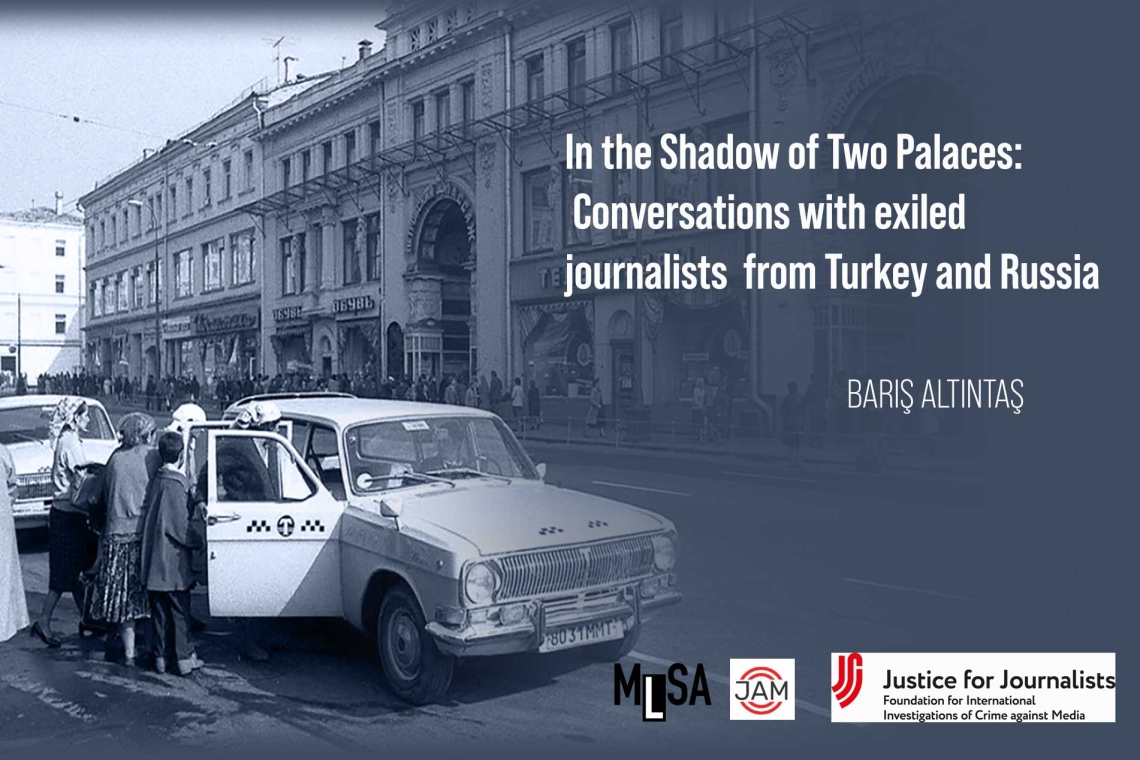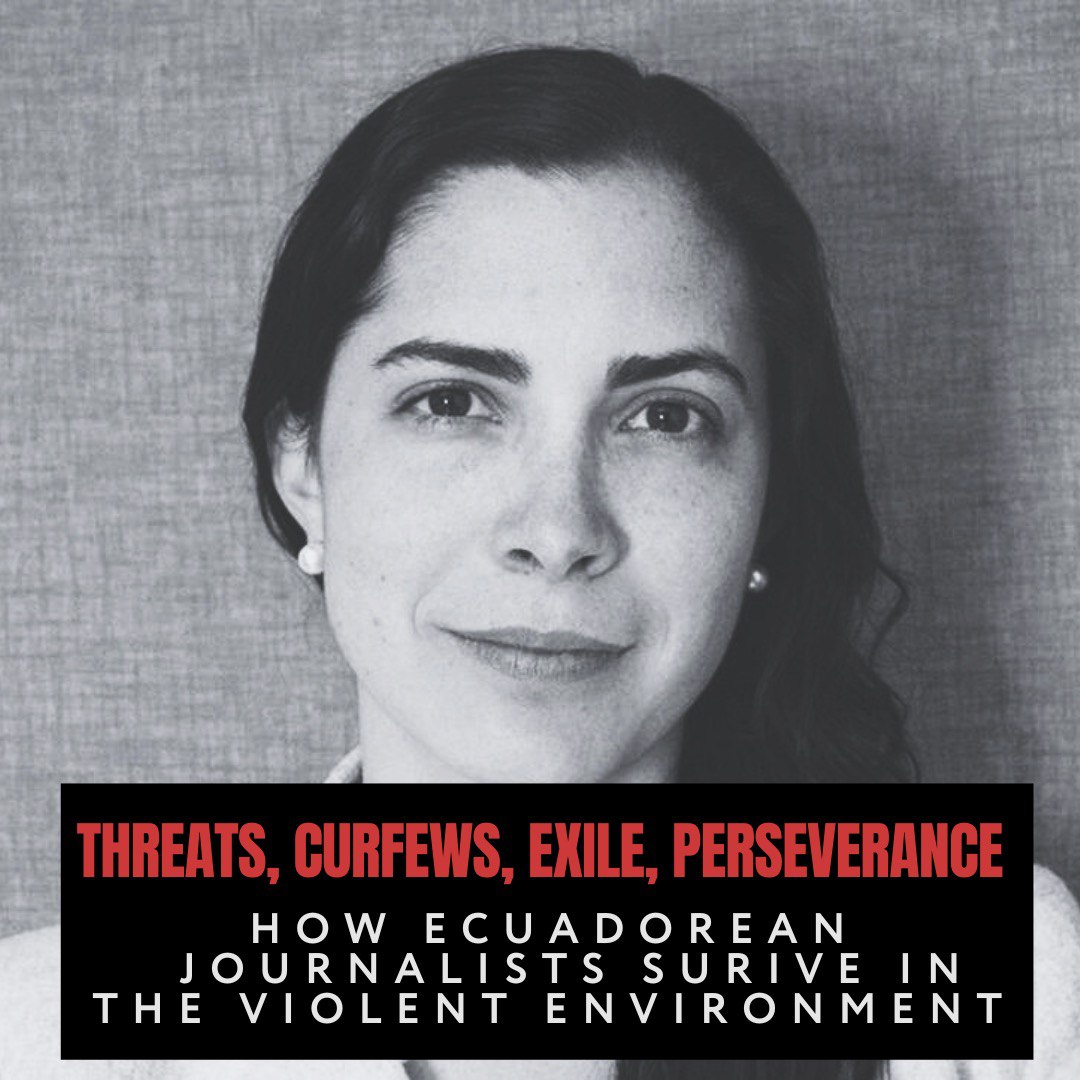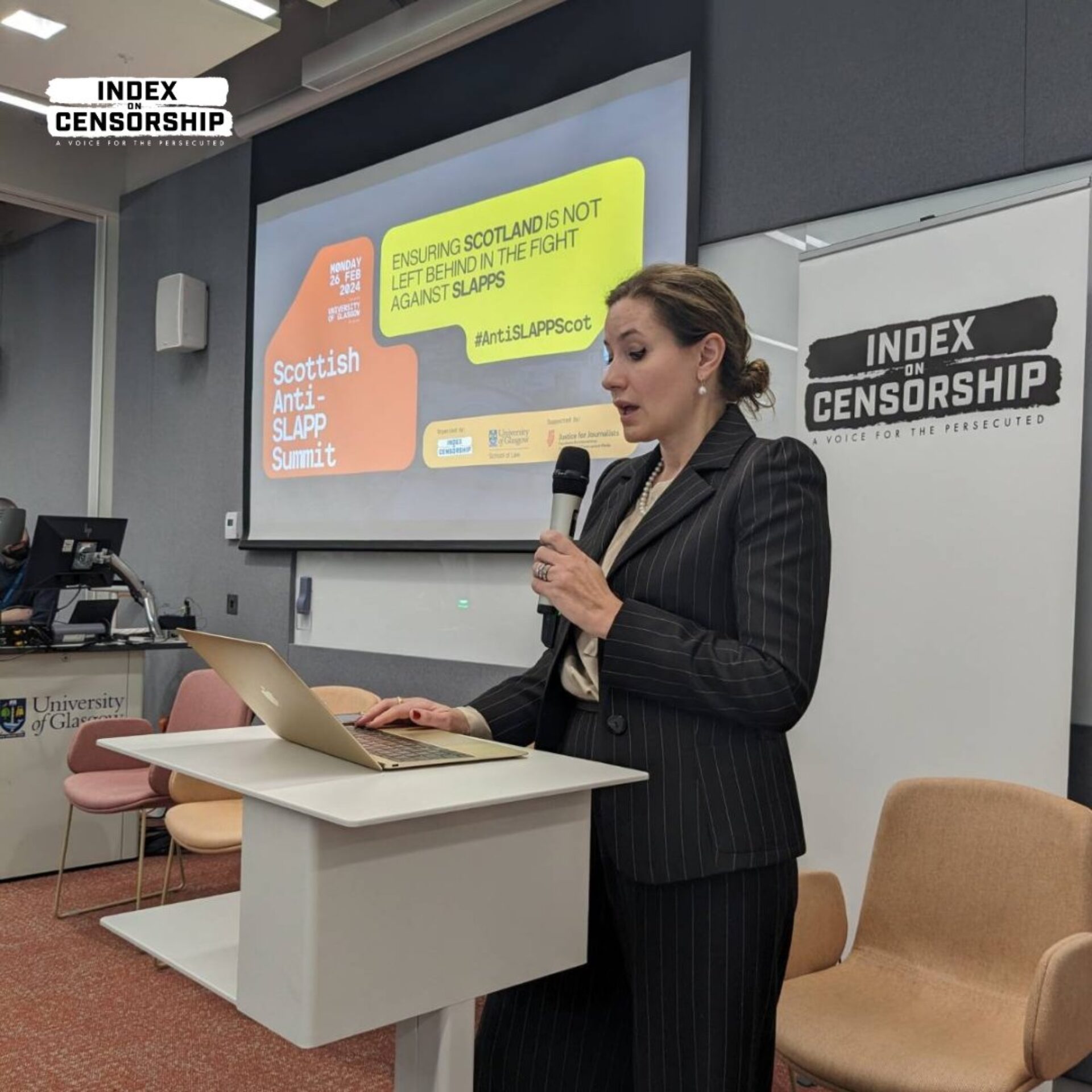KEY SAFETY RECOMMENDATIONS FOR MEDIA WORKERS COVERING THE WAR IN UKRAINE

In partnership with the National Union of Journalists in Ukraine and with financial support by UNESCO, JFJ has obtained and processed open-source evidence and satellite imagery of both fatal and non-fatal attacks against at least 55 media workers reporting from the war zone. On the basis of data analysis and witness interviews, JFJ has identified the key media risks and developed safety recommendations for media workers covering the war in Ukraine. The findings of the project were presented at the Kyiv roundtable on the 15th of February, and the list of recommendations is available on the JFJ’sand the Foreign Policy Centre’s websites.
INVESTIGATIVE GRANT PROGRAMME

On February, 23 the Media and Law Studies Association (MLSA) launched the report “In the Shadow of Two Palaces: Conversations with Exiled Journalists from Turkey and Russia”, supported by the JFJ Investigative Grant Programme. This crucial publication, authored by Istanbul-based journalist and MLSA co-director Evin Barış Altıntaş, features detailed narratives and interviews with 11 journalists who were forced to leave their homes in Turkey and Russia due to increasing pressures on free media. These stories not only highlight the personal struggles and resilience of these journalists but also delve into the broader implications of such mass displacement on journalism and freedom of speech.

From the start of the full scale invasion in the Ukraine, the work of independent Russian journalists and activists has became virtually impossible. Filmed before and after the invasion, the film “Of Caravan and the Dogs” by intrepid filmmaker Askold Kurov paints a portrait of the last defenders of democracy in Russia and offers a glimpse of hope for a different future. The film will be showcased on 9th and 16th of March, during the International Film Festival and Forum on Human Rights in Geneva, Switzerland.
TROUBLE WITH THE TRUTH PODCAST
In February, two new episodes of Trouble with the Truth by Lana Estemirova have been released. The first episode features Coda Story award-winning reporter Isobel Cockerell, who talks about why Big Tech moguls are failing to stop disinformation campaigns and what regulations could be put in place to aid journalists.
In the second episode, Lana talked with Isabel Ponce, a founder of the progressive Ecuadorean media outlet GK. She tells about her outlet’s ground-breaking investigative reporting and how the death threats force her reporters into exile. Isabel reveals the roots of unrest, threats that she personally faced and what can be done on a national level to protect journalists.
EVENTS AND ADVOCACY
- On February 26, the Index on Censorship, the University of Glasgow and the Justice for Journalists Foundation hosted the Scottish Anti-SLAPP Summit that brought together lawyers, journalists, experts and campaigners to learn more about the SLAPPs landscape in Scotland, identify the gaps in Scots Law and explore what we can do to protect Scotland’s courts from abuse. JFJ’s Director Maria Ordzhonikidze provided opening remarks followed by the keynote presentation from Paul Radu, the co-founder of the Organised Crime & Corruption Reporting Project (OCCRP).
- On February 27 the European Parliament approved the Anti-SLAPP Directive in its first reading. The Coalition Against SLAPPS in Europe (CASE) welcomed the adoption of the Anti-SLAPP Directive in the European Parliament plenary vote. The so-called Daphne’s Law aims to protect journalists, public watchdogs and other activists’ public participation rights. The directive sets minimum standards for protection of mentioned categories from abusive litigation. Justice for Journalists Foundation has been consistently supporting anti-SLAPP awareness raising efforts and advocacy, including conferences in London, Dublin, Brussels, Malta and Glasgow, and proudly celebrates this victory achieved by friends and partners in the CASE coalition.
- On Tuesday 5 March 2024, the Platform to Promote the Protection of Journalism and Safety of Journalists launches its report “Press Freedom in Europe: Time to Turn the Tide“. The report is written by the Platform’s Partner Organisations, a coalition of fifteen press freedom NGOs and journalists associations. It highlights key areas of law, policy and practices affecting media freedom and safety of journalists in Europe and identifies actions required to improve effective protection of journalists. The conference will be streamed via Vimeo.


In February, Orkhan Dzhemal Media Safety Academy conducted a psychological retreat for 20 Russian journalists. The retreat took place in a secluded location and lasted for three days. During the retreat, trainers provided various tools on how to deal with the continuing stress and burnout. Another important element of the retreat was to give the media workers who currently reside in different countries an opportunity to meet in person, share their problems and difficulties and support each other.
Also in February, the Academy wrapped up the series of online legal safety trainings for Russian journalists. Under the lead of a human rights lawyer and advocate, students studied their rights during arrest and search, dos and don’ts, and law enforcement practice. The group discussed the practice of application the “foreign agent” law, consequences of the “undesirable” status, and the proposed legislation allowing the seizure of assets in Russia.
On March 1-2, with support from JFJ, the 2402 Foundation conducted a test drive of immersive safety training in Kyiv. The VR content was developed by New York based company Head Set Immersive. The program is based on two main scenarios: civil unrest and digital security breach. They allow participants to experience work during violent demonstrations and learn how to protect information in conditions of real threat and psychological pressure.
If you are a media worker and require safety training of any kind, please do not hesitate to write a request to academy@jfj.fund.



